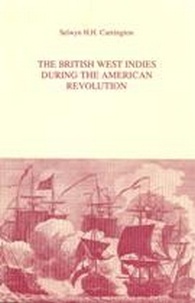The British West Indies during the American Revolution
Description
This study deals with the economic and political impact of the American War of Independence (1775-1783) on the development of the British West Indian colonies. On the basis of extensive archival material and statistical data, the author demonstrates that the American Revolution not only cut off the British West Indies from its main source of food and plantation supplies, but also sparked a continuous fall in the production of sugar and other staples, leading to the economic decline of the sugar colonies at the end of the eighteenth century. The British West Indian plantation economy was only possible because of the reciprocal trade links which had been developed with the North American colonies in the seventeenth and eighteenth centuries. This trade allowed the planters to pursue a monocultural economy. In doing so, they created Caribbean dependence on external sources of supply and markets. The independence of the United States in 1783 led the British government to adopt an insensitive and restrictive policy, which retarded sugar cane cultivation and sugar production. The islands thus became risky investment areas. The number of slaves declined as the debate on abolition intensified. This declining economic condition caused the islands to lose their position at the centre of the South Atlantic Commercial System. Selwyn H.H. Carrington (1937) was born in Tobago. He studied history and English at Sir George Williams (now Concordia) University, Montreal. In 1975 the University of London awarded him a Ph.D. in history, his dissertation being an earlier version of this book. Since September 1980, Dr. Carrington has lectured at the University of the West Indies, Trinidad.
Additional Information
| Edition | |
|---|---|
| Series | |
| authors | 785 |







